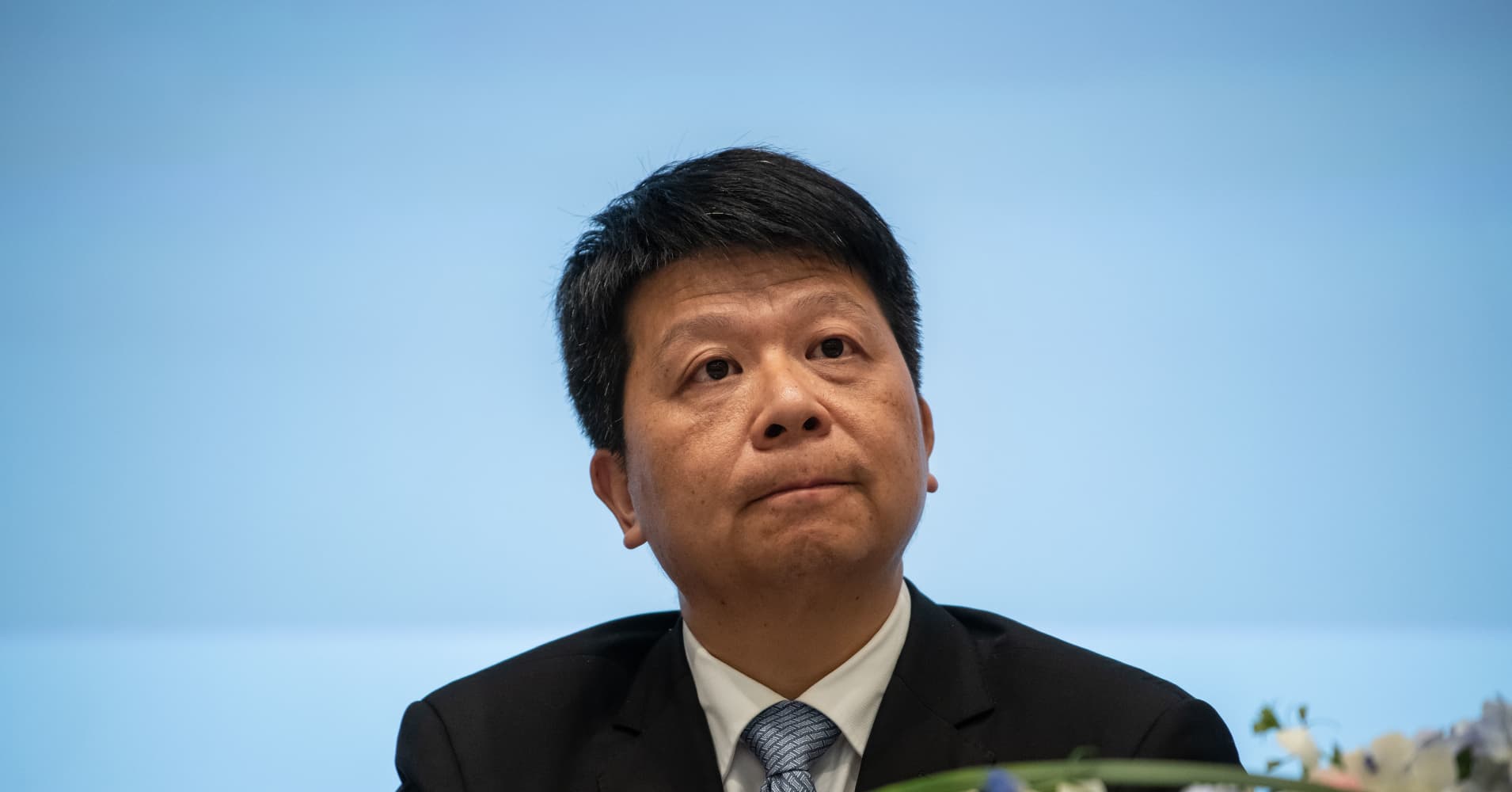
The U.S. has a "loser's attitude" and is trying to smear Huawei because it can't compete with it, one of the top bosses at the Chinese firm said on Friday.
During a press conference in which Huawei announced record revenue, Rotating Chairman Guo Ping attacked the U.S.
"The U.S. government has a loser's attitude. It wants to smear Huawei because it cannot compete against us," Guo told a room of reporters at the company's headquarters in Shenzhen, China.
Washington has said Huawei's networking equipment poses a risk to countries because it could be used as a backdoor by the Chinese government for espionage, accusations the company has repeatedly denied. Huawei is suing the U.S. over a law that bans government agencies from buying the firm's equipment, claiming the legislation is unconstitutional.
Guo said the U.S.'s actions have "troubled" the company to some extent, but that customers would make their own decisions about whether to use the Chinese vendor's equipment or not.
"Countries that choose to work with Huawei will gain an advantage in the next wave of growth in the digital economy," Guo said at the press conference.
He addressed questions about the spying allegations saying that allowing Beijing to carry out espionage work via its equipment would be "equal to suicide."
"We have no intention of committing suicide," Guo said.
While Huawei equipment is banned in the U.S. and Australia, other nations have not blocked the company from participating in the rollout of next-generation mobile networks known as 5G.
Experts have been skeptical about Huawei's assurances that it isn't a security risk, pointing to Chinese laws that allegedly mean every domestic company is legally mandated to assist the country in intelligence gathering if Beijing requests it.
The U.K. warned earlier this week that Huawei's software still poses a risk to British mobile networks, but stopped short of an outright bank. Italy and Germany have not moved to block Huawei.
5G is a fifth-generation wireless network that promises faster speeds and lower latency, increasing download speeds for consumers and potentially transforming industries like the internet of things and self-driving cars.
Spokespersons for the White House and the Department of State weren't immediately available for comment when contacted by CNBC.
No comments:
Post a Comment